When you think about building muscle, you might picture plates full of chicken, eggs, and fish.
But here’s the truth, you can absolutely build strong, lean muscles on a vegan diet too. The key is eating enough protein, healthy fats, and complex carbohydrates from plant-based sources.
If you’ve ever wondered whether it’s possible to gain muscle without meat or dairy, the answer is a big yes.
With the right foods and proper balance, your body can recover faster, grow stronger, and feel more energised than ever before.
1. Lentils
Lentils are one of the best plant-based protein sources you can find. A single cup of cooked lentils packs about 18 grams of protein and is also rich in fibre, iron, and magnesium. They help repair muscle tissues and keep your energy levels steady throughout the day.
2. Chickpeas
Chickpeas are another excellent source of plant-based protein and complex carbohydrates. Each cup provides around 15 grams of protein along with a healthy dose of vitamin B, which helps your muscles use energy effectively. They also have a low glycaemic index, meaning they release energy slowly — perfect for longer workouts.
3. Plant-Based Protein Powder
Reaching your daily protein goal can be quite challenging on a vegan diet. That’s where a good-quality plant-based protein powder makes things easier. Pure plant-based protein powders are specially formulated to support muscle growth, strength, and recovery completely vegan, natural, and delicious.
A 2020 study published in the Journal of the International Society of Sports Nutrition found that pea protein is just as effective as whey protein for promoting muscle growth.
4. Quinoa
Unlike most plant-based sources, quinoa is a complete protein, meaning it contains all the essential amino acids your body cannot produce on its own. One cup provides around 8 grams of protein along with complex carbohydrates for sustained energy. It’s also rich in magnesium and iron, which help deliver oxygen to the muscles.
5. Tofu and tempeh
Tofu and tempeh are made from soybeans, making them two of the most versatile vegan protein sources. They are rich in calcium, iodine, and isoflavones, all of which support bone and heart health, essential for anyone leading an active lifestyle.
6. Black beans
Black beans are rich in protein and packed with fibre, potassium, and antioxidants. They support muscle repair, help stabilise blood sugar levels, and promote better gut health.
7. Edamame
These young green soybeans may be small but are incredibly powerful. One cup of edamame provides around 17 grams of protein, along with calcium, iron, and vitamin K, all vital for maintaining strong bones and muscles.
8. Nuts and Seeds
Nuts like almonds, cashews, and walnuts, along with seeds such as chia, hemp, and flax, are excellent plant-based sources of protein and healthy fats. They’re rich in omega-3 fatty acids, which help reduce muscle inflammation and aid in recovery.
9. Oats
Oats are an excellent source of slow-digesting carbohydrates and provide around 6g of protein per half cup. They help fuel your workouts and keep your energy levels steady throughout the day. Oats are also rich in vitamin B and magnesium, both essential for muscle contraction and repair.
10. Seitan
Often called wheat meat, seitan is made from wheat gluten and is one of the richest plant-based protein sources, offering about 25g of protein per 100g. It’s highly versatile, you can grill it or add it to wraps. However, it’s not suitable for those with gluten sensitivity.
11. Green Peas
Green peas are packed with protein and essential vitamins such as A and B, along with antioxidants that help reduce exercise-related inflammation. You can easily add them to soups, curries, or stir-fries to boost your protein intake.
12. Sweet potatoes
Sweet potatoes may not be particularly high in protein, but they are an excellent source of complex carbohydrates and antioxidants that support workouts and recovery. They’re rich in beta-carotene, potassium, and fibre, which help maintain steady energy levels and muscle strength.
13. Spinach and Leafy Greens
While not major protein sources, leafy greens such as spinach and kale provide small amounts of protein along with plenty of iron, calcium, and vitamin C. These nutrients support collagen formation and oxygen transport, both vital for muscle growth and recovery.
14. Nutritional yeast
Nutritional yeast is a true vegan secret weapon, a complete protein rich in vitamin B12, a nutrient many vegans tend to miss out on. Just two tablespoons offer around 8g of protein and a natural cheesy flavour, making it perfect for topping popcorn, pasta, or salads.
Tips to Maximize Muscle Gain on a Vegan Diet
-
Eat enough calories. You need more energy to build muscle.
-
Combine protein sources. Mix grains with legumes to get complete amino acids.
-
Stay consistent. Muscle growth takes time — stick to your routine.
-
Lift weights or do resistance training. Exercise stimulates muscle repair and growth.
-
Sleep well. Muscles recover while you sleep.
-
Use quality supplements. A clean plant protein like Immunosciences Plant Protein Powder can bridge nutritional gaps.
Read more: The Plant-Powered Path to Health: How a Vegan Diet Can Boost Your Well-Being
Conclusion
So, can you build muscle on a vegan diet? Absolutely, yes.
Plant-based foods provide everything your muscles need, protein, amino acids, healthy fats, and energy, while keeping your body light, clean, and strong. From lentils to tofu, these 14 vegan foods can help you gain lean muscle naturally.
The key is to eat a balanced diet, stay consistent with your workouts, and ensure you’re getting enough calories and nutrients. With the right approach, a vegan lifestyle can not only support muscle growth but also boost your overall health and performance in the long run.

